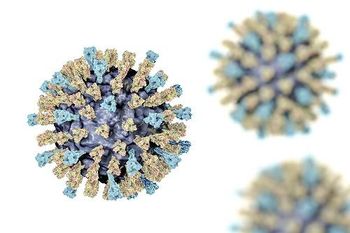
ASHP 2019 News Network: Decreasing Length of Stay for ABSSSI
Segment Description: Krutika N. Mediwala, PharmD, BCPS, BCIDP, assistant professor, College of Pharmacy, Medical University of South Carolina, discusses improving algorithms to identify patients with skin infections in order to decrease length of stay and improve patient outcomes.
Interview transcript (modified slightly for readability):
From a clinician point of view, I think education is very important in trying to identify those patients. Again, like I mentioned, maybe we need a change in the algorithms and a way to early identify these patients to see if we can they can benefit from IV treatment early on, 1 or 2 doses fine. And then having a landscape where maybe we don't need an inpatient setting, but we don't need and maybe clinic setting either like maybe halfway point would be better to assess these patients, monitor them while these doses are being given. And then see if we can finish out the treatment course with some of the oral antibiotics.
Some of the longer lasting agents like I had mentioned that lipoglycopeptides, they're really changing the landscape we're seeing more and more use of dalbavancin and oritavancin for ABSSSI. It's very helpful because from a coverage point of view, compliance point of view that patients are able to get this dose very quickly and move on with their lives and then just making sure we have a follow up appointment. Even though these agents are FDA [US Food and Drug Administration] approved for ABSSSI there is more and more evidence that's coming forward for maybe other indications and other infections. Which in general will decrease their length of stay in the inpatient setting and have more options for patients that are, you know, walking and talking and they're not really fit for the hospital, but they still have that infection to deal with.
Newsletter
Stay ahead of emerging infectious disease threats with expert insights and breaking research. Subscribe now to get updates delivered straight to your inbox.



































































































































